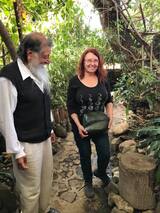
The Summit was a follow-up to the United Nations' 2012 Year of the Decade, which culminated with publication of the “Blueprint for a Co-Operative Decade.” The Blueprint is a plan to increase public awareness and understanding of cooperatives, promote the formation and growth of cooperatives, and encourage governments to adopt laws and policies to support cooperatives.
If you are from the United States, you may be familiar with one or more cooperatives without realizing it. For example, credit unions, housing, and food cooperatives are spread throughout the country. Or, you may have heard of one of the following cooperatives: Land O’Lakes, Ocean Spray; Blue Diamond Growers (walnuts); Ace Hardware; Sunkist Growers, Inc.; Welch’s (Welch Foods, Inc.); and REI (sporting goods). CHS, Inc., the largest U.S.-based cooperative, is owned by farmers, ranchers, and co-operatives from across the nation. Over 100 million people belong to 47,000 cooperatives in the U.S., and those cooperatives provide goods and services in nearly every sector of the economy.
Cooperatives are far more prevalent in many countries as compared to the United States. According to the Worldwatch Institute, as of 2012, cooperatives had 1 billion members around the world. In India, 67% of rural households are served by cooperatives, and 40% of households in Africa belong to one. Mondragon is one of the most well-known cooperatives in Europe and beyond. It is the largest business group in the Basque Country and seventh largest industrial group in Spain. Mondragon includes 74,060 employees working in 257 businesses and cooperatives, and it has subsidiaries and offices in 41 countries.
Awareness and knowledge of cooperatives is increasing each month; I see more and more articles in newspapers and magazines. Meanwhile, next time someone asks you to name a cooperative, you will be able to do so. Additionally, here are two websites to help you learn more: (1) the Quebec 2014 International Summit of Cooperatives: http://www.intlsummit.coop/cms/en_CA/sites/somint/home.html, and (2) the International Cooperative Alliance: http://ica.coop/.
Copyright ©2014 by Paulette L. Stenzel for text.

 RSS Feed
RSS Feed